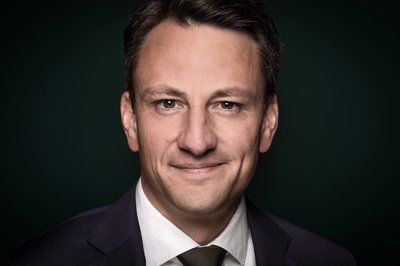New controls on foreign direct investments in Switzerland – the Swiss government publishes basic parameters of a still liberal investment control regime
To date, Switzerland has been very liberal on investment control. While the Swiss government still tends to oppose tighter rules for inbound M&A by foreign countries or state-backed investors, its recent publication of basic parameters for a draft bill marks a first step in response to a parliamentary request for a draft legislation on direct foreign investments.
Key takeaways
- Today Switzerland is very liberal on investment control. While this is not expected to change fundamentally for foreign private investments, tighter rules on foreign state-backed investments are becoming more likely in the medium term.
- The Swiss government has published parameters of a draft bill on investment control but these are not detailed enough to enable a prediction of the key elements of such new investment control regime.
- It is still unclear what industries would be subject to notification and approval requirements in case of foreign private (non-state backed) investors; however, based on the government's media release of 25 August, at least for the first draft bill, it seems that virtually all fields and industries could be affected by notification and approval requirements in case of acquisition of a controlling stake by foreign states or state-backed investors.
- The new rules will become clearer once the draft bill is published, which should happen by the end of March 2022. Thereafter a public consultation and a parliamentary debate will follow - with much uncertainty as to further amendments of the draft bill and as to if and when Parliament would in fact pass the bill in the end and whether Swiss voters would call a referendum, triggering a popular vote on the topic.
- Already today, foreign investments can be impacted by sector-specific regulations and (license) requirements and merger control as well as due to disclosure and takeover rules for listed companies.
Background
The parliamentary initiative and request for legislation on direct foreign investments was fuelled by a series of takeovers of Swiss companies by state-backed enterprises and a tendency in many other countries to tighten the rules on foreign investments. There is, however, still a long way to go until such controls may become law in Switzerland. The draft bill should be published by the government by the end of March 2022. Thereafter, the customary public consultation process will follow, which could lead to further amendments of the draft. After that, Parliament will debate and decide on the new legislation. Swiss voters then have the possibility to call a referendum and vote on such new law. It is, therefore, still very uncertain if – and when – the new rules will become law.
Parameters of the (possible) new rules
In agreement with many other opponents of the new bill, the Swiss government restated its view as published in an detailed report on cross-border investments in 2019 stating that an open-door policy allows Swiss companies to access capital and expertise, enhancing prosperity and the creation of new jobs in Switzerland. The cost-benefit ratio of tighter rules was assessed as unfavourable and the existing rules were deemed sufficient in order to prevent substantial harm due to inbound M&A by foreign investors. Therefore, the government again emphasised that the objective is to remain attractive for foreign investments and to ensure compatibility with obligations under international law. It also stated that the main threats are likely to come from state-backed investors, implying that the new bill will differentiate between private and state-backed investments.
The published parameters give some limited insights into 'potential threats' and the process of the investment control review. However, the magnitude of the new rules and the industries affected by it are still difficult to foresee at this stage.
In substance, the published parameters remained vague in stating that the new bill aims to prevent a threat to ‘public order and security’ or a distortion of competition by takeovers by foreign states or state-backed investors. Mentioned examples include the intent to prevent inbound M&A that might result in:
- Companies that might fail to provide an indispensable service to the public
- Critical dependence on and reliance of (i) the Swiss military on critical arms suppliers, (ii) the public on critical information technology suppliers or (iii) international space infrastructures backed by Swiss investments on critical components required for such infrastructures
- Access by a malicious actor to sensitive personal data, or
- Significant distortions of competition due to takeovers by foreign states or state backed investors
These examples as well as the definition of the necessary ‘control’ in a ‘Swiss domestic company’ subject to these rules remains largely unclear at this stage. The media release by the government seems to suggests that while it remains unclear what industries would be subject to notification and approval requirements in case of foreign private (non-state backed) investors, at least for the first draft bill, it must be expected that investments by foreign states or state-backed investors leading to foreign state-backed control of a Swiss company could be subject to notification and approval requirements in virtually all fields and industries.
In terms of process, the disclosed parameters suggest a process similar to Swiss and other merger control regimes, providing for a two-step process: A short initial phase is concerned only with assessing whether a second phase review is required. If not, the transaction can be closed without significant delay. If the second phase is required, a more time consuming and thorough review will follow that may lead to the prohibition of a transaction.
Current legal situation
Sector-specific regulations and/or license requirements for foreign investments already apply, for example, for investments in banks, securities dealers, real estate, telecommunication, aviation, radio and television and nuclear energy. In addition, many other industries are subject to license requirements without explicit requirements for foreign investors (for example in insurance, gambling, postal services or defence). Also, many critical infrastructures are currently controlled by the Swiss federal, cantonal or municipal authorities and allow a de facto investment control for example in railways (SBB), public hospitals, roads, public utility companies, telecoms (Swisscom and Swiss Post), power plants etc. Finally, foreign (and domestic) investments may be impacted due to merger control as well as due to disclosure and/or takeover rules applicable for listed companies.
No legal advice
This legal update provides a high-level overview and does not claim to be comprehensive. It does not represent legal advice. If you have any questions relating to this legal update or would like to have advice concerning your particular circumstances, please get in touch with your contact at Pestalozzi Attorneys at Law Ltd. or one of the contact persons mentioned in this legal update.
© 2021 Pestalozzi Attorneys at Law Ltd. All rights reserved.





